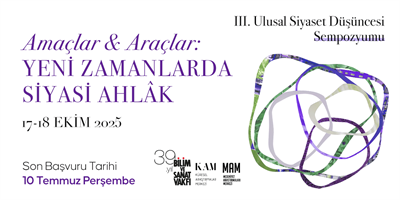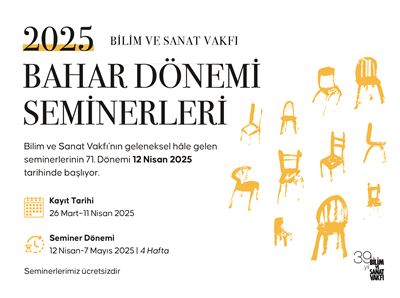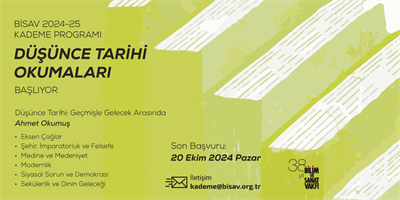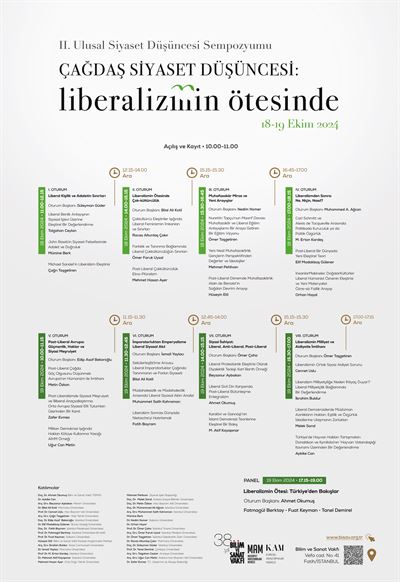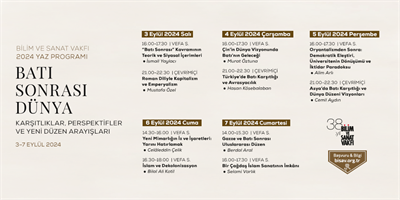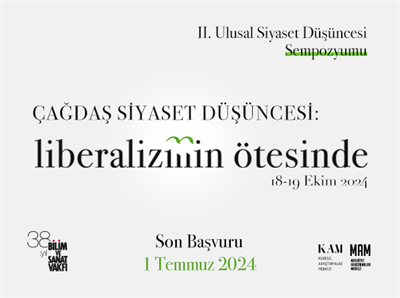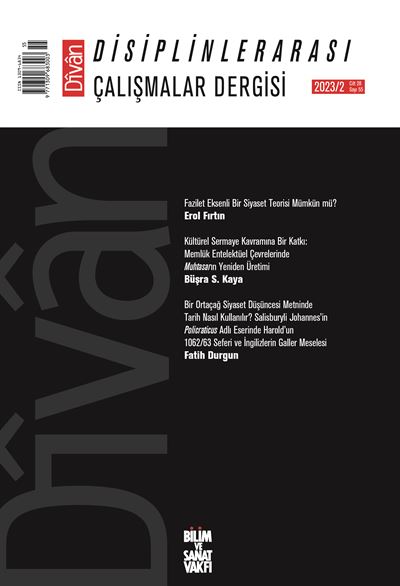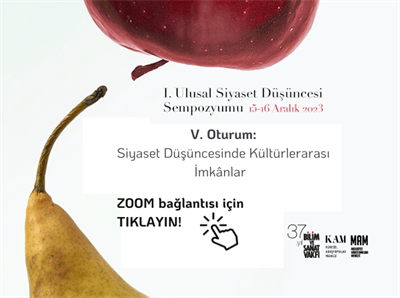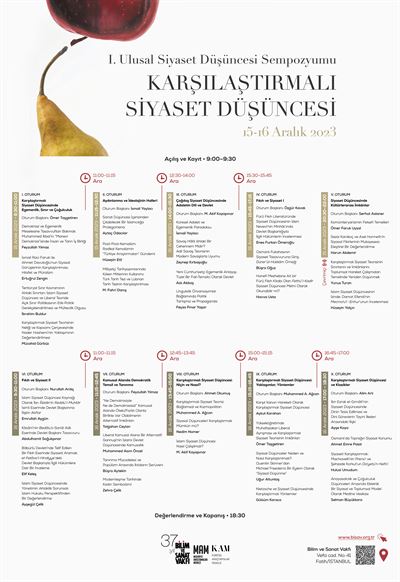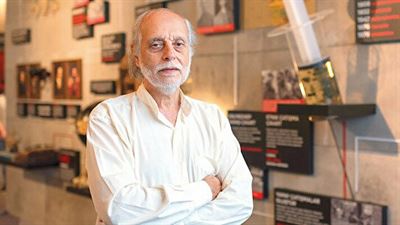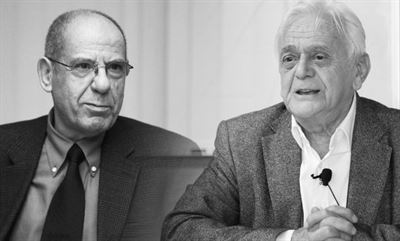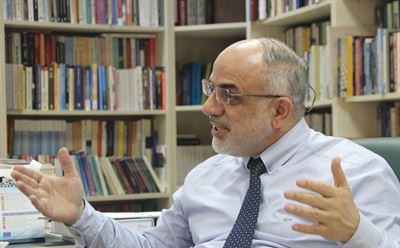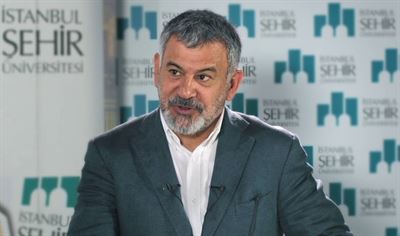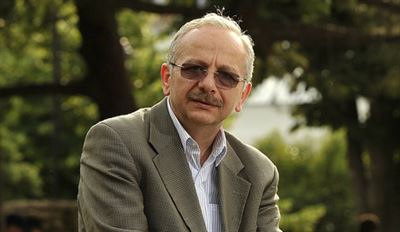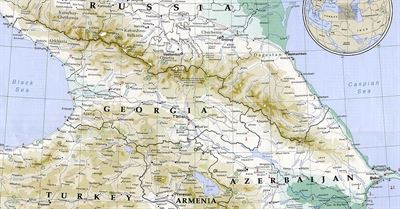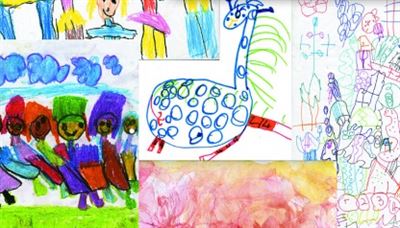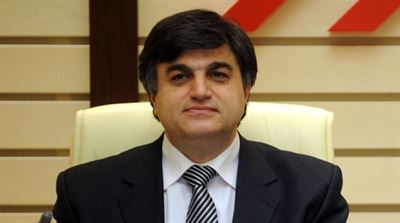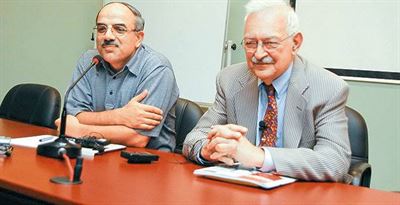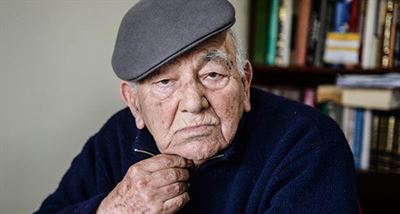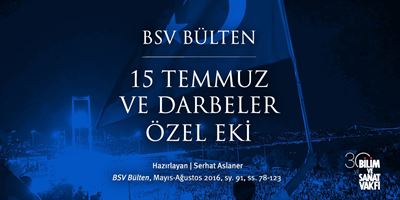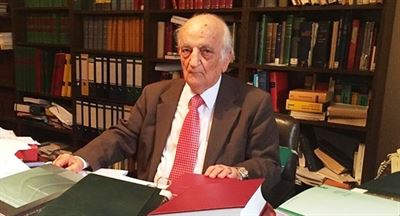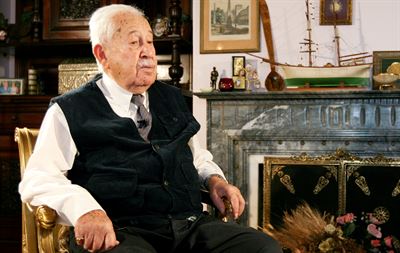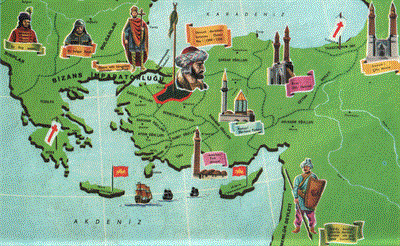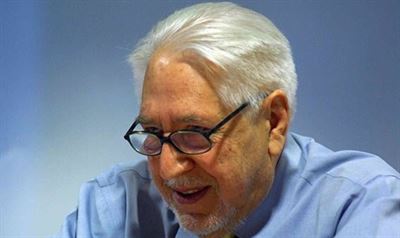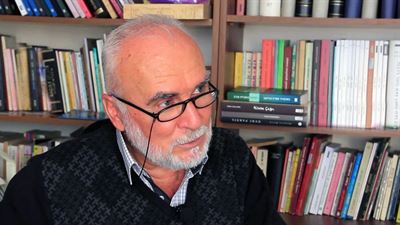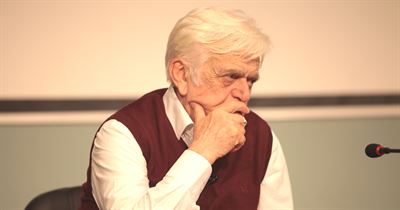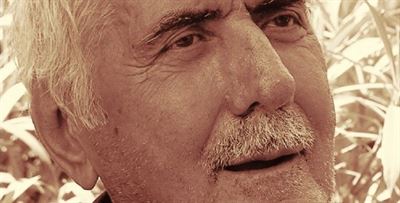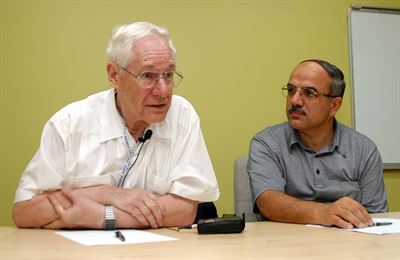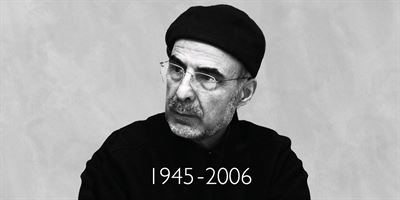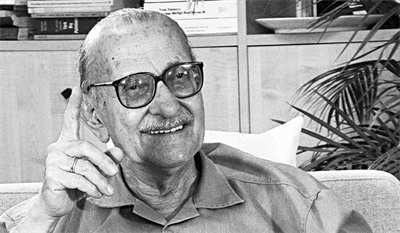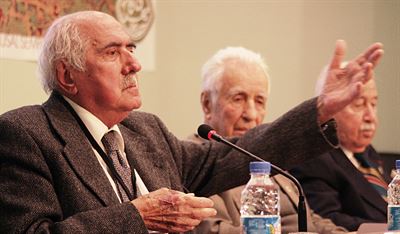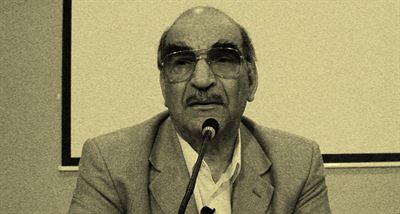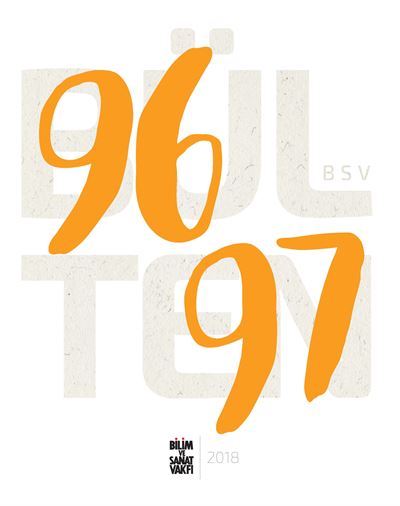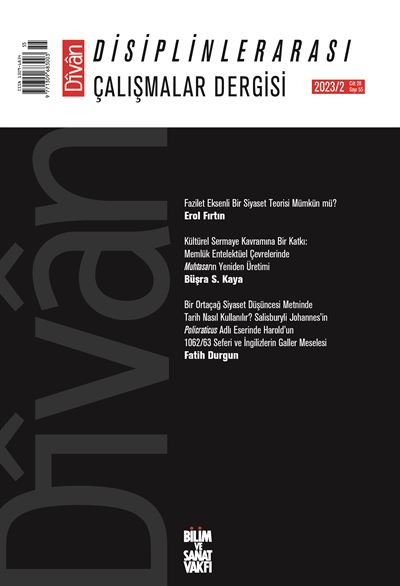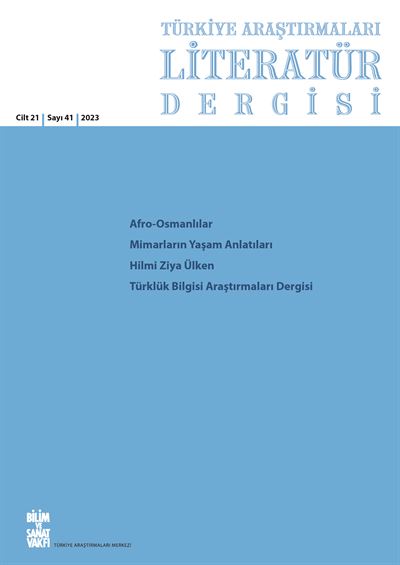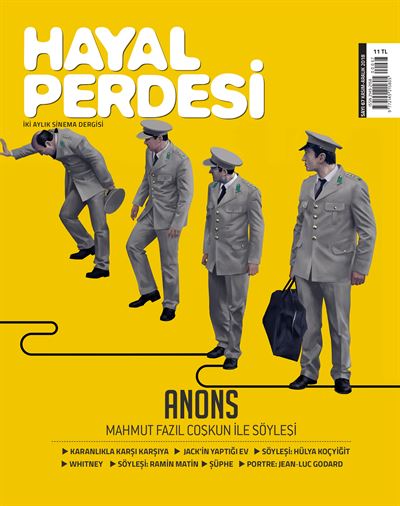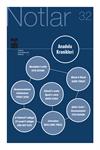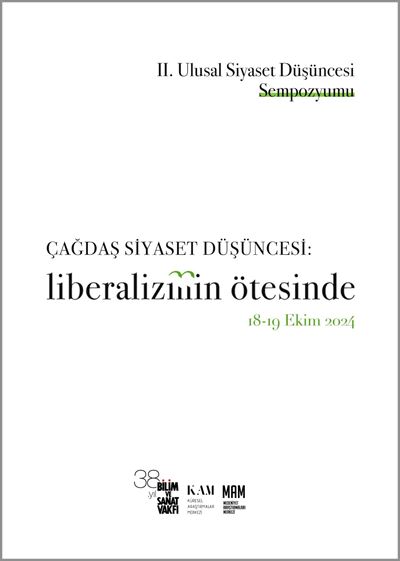
- الصفحة الرئيسية
- مراكز البحوث
- SAM
- Gelibolulu Mustafa Âlî’nin Kayıp Farsça Divanı
SAM ROUNDTABLE MEETINGS
Gelibolulu Mustafa Âlî’nin Kayıp Farsça Divanı
Turgay Şafak
06 يناير, 2020 05:00 م Salon: ŞAKİR KOCABAŞ SALONU
On January 6th 2019, Center for Art Studies will host Turgay Şafak under the Kırkambar Dissertations and Articles. He will deliver a speech about “Gelibolulu Mustafa Âlî’nin Kayıp Farsça Divanı” based on his article.
The event will be held in Şakir Kocabaş Hall of the Foundation for Sciences and Arts at 17:00.
The event will be presented in Turkish, and is free to public.
İLGİLİ YUVARLAKMASALAR
- The Euroscepticism in Turkey: An Analysis of PRP (CHP), NAP (MHP), and JDP (AKP)
- Turkish-Persian Literary Relations
- Metaphysical Evil and Art
- Self-Knowledge in Avicenna and Descartes
- Contemporary Art in Turkiye at the Context of III. International Istanbul Triennial
- The Travelling Storytellers
- Law and Morality: Bounded or Distinct? An Argument on Hart
- Dream (Rüya)
- On the Track of Tale
- Confronting through Foreign Policy: AK Party, Military and Kemalism)
- The Problem of Meaning in Literature, Music and Calligraphy
- Mutual Origin of Art and Philosophy: Techne in Platon
- Album
- The Apprentice (Çırak)
- Architecture in Turkiye in 2000s: Problems and Opportunities
- Turkish Novel ve Politics
- Entertainment Culture of Ottoman Istanbul and Karagöz
- Cold of Kalandar
- Turkish Tradition Theater and Karagöz
- The Challenge of Europe's "Now": Time in the Romantic Age Architecture
- Symbol and Metaphor in Paul Ricoeur’s Philosophy
- Execution style of Karagöz Music
- Carl Schmitt's Partisan Theory
- Critique of Mimesis in Platon’s Thought
- Transformation of Art in Türkiye
- Did Karagoz come from Egypt?
- The effects of the language reforms on Turkish literature in the context of poetry and translation in The Early Republican Period (1932-1950)
- Islamic Visual Culture between Theory and Practice
- Karagoz and Cinema
- A Recently-Emerged Loner in Anatolia
- Karagöz Plays in Print Works: “Letaif-i Hayal"
- Tensional Friendship Between Literature and Cinema
- Cicadas and Ants
- Economy-Politics of the Turkish Foreign Policy During the AK Party Period
- Cinema at the Crossroads of Philosophy and Literature
- All Felicities Are Possible
- Cinema in the Ottoman Empire from the Period of Autocracy to the World War I
- Dramaturgy in the Texts of Karagöz
- The Metaphysics of Sacred Art
- From Art to Truth: Heidegger, Van Gogh, Schapiro, Derrida
- Something Useful
- A Wooden Building Cooperative in Afyon
- Documentary Cinema and the Artistic Adventure of Reality from Literature to Cinema
- Closed Economics Open Text
- Eco-fiction: Literature as a Solution to Ecological Problems
- Writing Human: An Analysis of Ottoman Biography Authorship and Its Problems in the 19th Century
- Geometric Patterns in Classical Ottoman Architecture
- Modernism and House
- General Legal Arrangement Efforts in Ottoman Cinema: The Fate of a Lâyiha
- An Overview of Adaptations of Award-Winning Novels in American and Turkish Cinemas
- Philosophical Hermeneutics and Art
- The Birth of Modern Family and House in Istanbul Since
- Mirâciyye
- Tanpınar and the Third Eye of Ra
- Film as a Material of History
- A Neighborhood Fiction: İznik Toki Houses
- How Canonicalize the Second New Poem
- America and the Making of Modern Turkey: Science, Culture and Political Alliances
- Mevlevi Sheikh Kemal Ahmed Dede
- Tanburi Cemil Bey
- Everday Life, Status Groups and the Sayfiye Culture in Kadıköy During the Second Constitunional Period
- House Indeed: An Adobe House in Kahramanmaraş
- Understanding Collaborative Partnership Practices in Cultural Heritage Management: Case Study of Maritime Greenwich
- The Issues Concerning the Origin of Turkish Cinema History
- Cinema and Philosophy
- Cultural Role of Islamic Calligraphy in Houses in the Late Ottoman Period
- House in the East Blacksea and a New Trial: House of Yaşar
- From the 19th Century to the Present: Romance, Melancholy and Politics
- Cultural Production Spaces in Ottoman Society
- The Legend of Yaşar Kemal
- The making of a cinema culture through cinema magazines in early Republican Turkey
- Yahşibey Houses
- Eski Köye Yeni Roman
- The Story of Two Houses in Fatih
- Cinema Between Reality and Magic
- Edirne Uc Serefeli Mosque and the Restorations up to the Republican Period through the Documents
- The Same Man's Story: İsmet Özel and Partisan
- The Challenge of Algorithmic Fiqh
- Yaralı Erkeklikler: 12 Mart Romanlarında Yalnızlık, Yabancılaşma ve Öfke
- The Kiosk of Poet: Aşiyan
- The Genius Grandson of the Prophet: Şerif Muhiddin Targan
- The Latecomer Home
- Let Children Play
- Celebratory Poems
- Kemal’le İhtimal Namık Kemal'in Şiirine Tersten Bakmak
- Mesud Cemil
- Historicizing The Novel: Madonna in a Fur Coat as a Literary Event
- A Scholarly Literature Class at Sahn Madrasas in the Sixteenth Century Students of Karamani Mehmed Efendi
- Çoker House
- Talk with Eric Broug: On Islamic Geometric Patterns
- Hybridizing Conflicts and Power Pendulums
- İnsan Varsayımı (I): İnsanca, Pek İnsanca
- Romantic Guardians of Lost Time: Yavuz Turgul Movies and Nostalgia in the Context of Social Change After 1980
- An Urgup Experience in the Context of Locality
- Gelibolulu Mustafa Âlî’nin Kayıp Farsça Divanı
- İslamcıların Siyasi Görüşleri 2
- The Street of Sedat Anar: Sokaknâme
- Transformative Impact of the Process of “İstinsâh”: The Instance of Qıssa-i Yûsuf of Yûsuf-ı Meddâh
- Children’s Literature in Turkey
- The Continuities and the Changes of Child İmage in Turkish Cinema from Yesilcam to Arabesk
- The Disaster of the Ideological Intervention on Culture and Art: What the Experience of Socialism Can Teach
- From Fasıl to Chorus: Choir as a Standardizing Tool in Classical Turkish Music
- National Vision Movement: Political and Social Transformations
- Cultural Policies in the Centennial of the Republic
- Poetry and Economics: On 'Twenty Reasons I Hate John Maynard Keynes'
- Warriors Without Borders? Rethinking Foreign Fighters in Modern Conflicts
- Artificial Intelligence, Translation and Publishing
- Artificial Intelligence and International Relations: The Possibility of a Global Nopolitical Order
SEMINARS

As the most traditonal activity of BISAV, the courses take place in every fall and spring of a year.
MORE INFO
